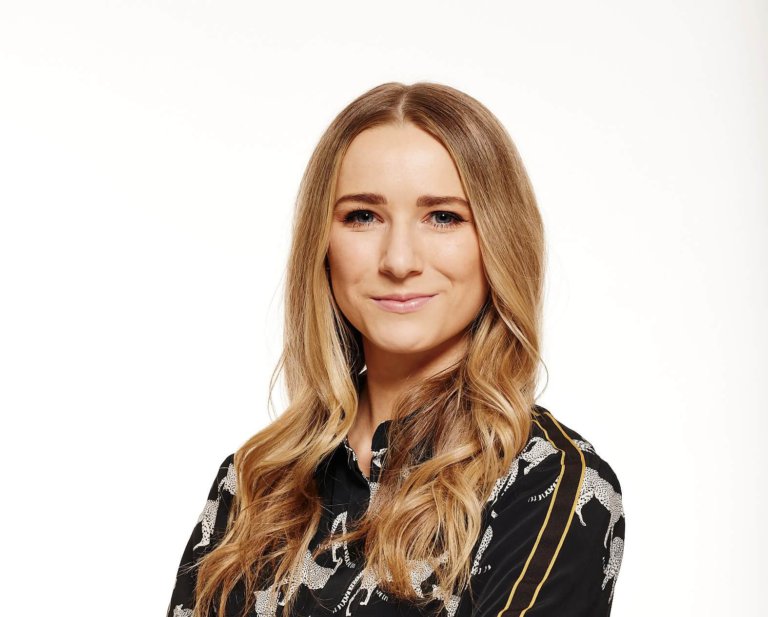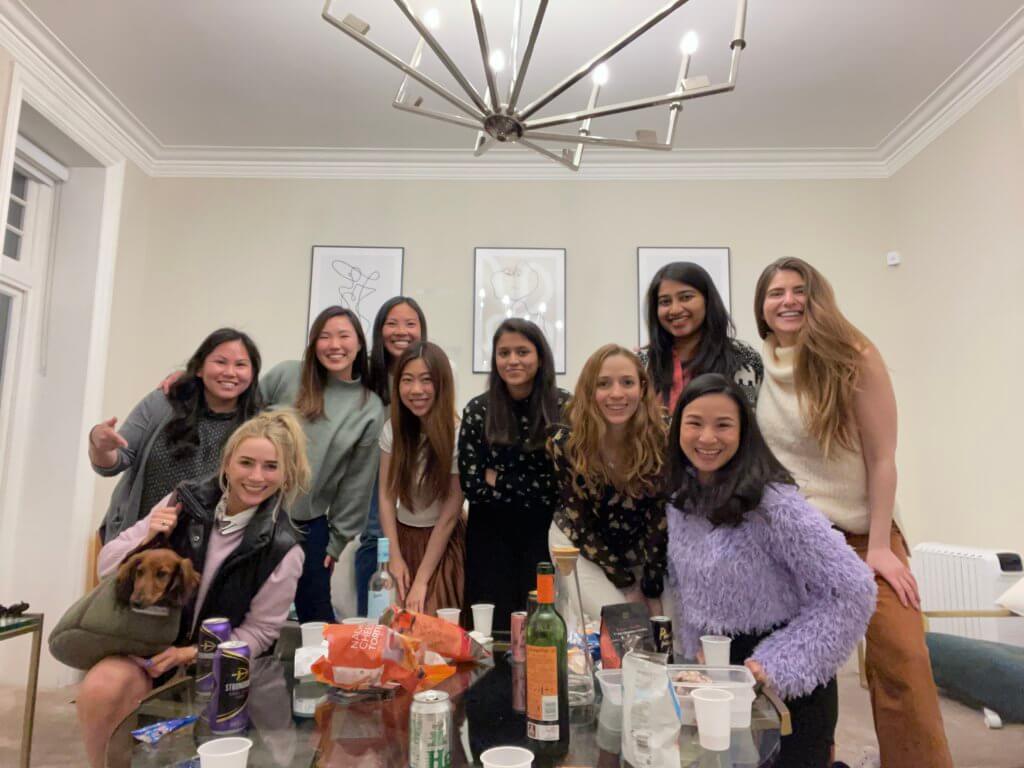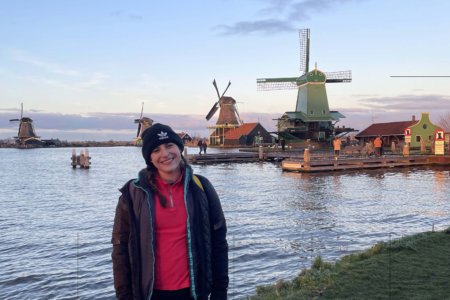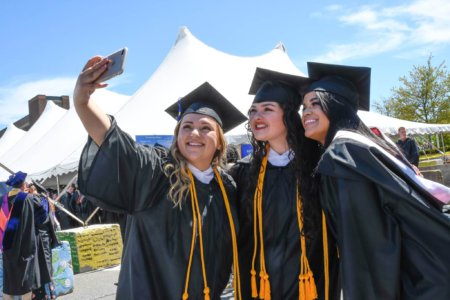
Women represent a painfully small number of professionals in the engineering field, something Irish lass Aiofe Considine can attest to. Considine is an MBA candidate at Imperial College Business School and a railway engineer who has worked on life extension and upgrade projects for existing London Underground trains — or the Tube as it is fondly called — helping thousands of passengers move from one location to another safely and cheaply.
Before embarking on her b-school journey, the Edie Hunt Inspiration Award recipient often found herself in situations that reminded her how she makes up just 12% of female engineering professionals. This figure drops to the single digits when looking into female representation of railway engineers, something which she finds difficult to ignore.
It wasn’t uncommon to be the only female in the room, but pursuing an MBA getting involved with the ImperialMBAWomen’s group has exposed her to the importance of having a strong female network when it comes to the working industry.

“Unlike many of my peers in engineering, I didn’t have any engineers in my family,” she says. Source: Aoife Considine
“There’s a saddening trend between the number of women studying engineering and those who decide to pursue careers in it,” she tells Study International in an email interview. “I believe it’s because there is little support in engineering workplaces to make women feel more comfortable and welcomed. Little things like having adequate toilet facilities are often overlooked if there’s never been a woman on the team.”
ImperialMBAWomen’s group is a student-led initiative that brings together Imperial’s female MBA students; it acts as a support system for their professional development in business roles. Considine is the current president of this initiative. We caught up with her to find out more career aspirations, her studies at Imperial College Business School and winning the Edie Hunt Inspiration Award:
What’s the backstory behind your interest in mechanical engineering? Tell us about your studies at Trinity College Dublin.
My dad is a doctor and my mum is a microbiologist, so growing up, there was definitely a focus on the importance of science in our household. However, my best subject in school was English, and my worst was physics.
I learnt about engineering from watching documentaries. I was hooked on everything from Extreme Engineering to Scrapheap Challenge and Top Gear. I often joke about studying engineering because I fancied Jeremy Clarkson (one of the hosts of Top Gear) as a teenager. But what really drew me to it was the desire to understand how the world works and to one day build things that help people’s lives.

“With my background in engineering, Imperial College Business School was the obvious choice due to its strong STEM tradition,” says Considine. Source: Aoife Considine
Studying this at Trinity College Dublin meant I had two years of general engineering [under my belt] before specialising in mechanical and manufacturing engineering. This firm grounding made me appreciate all types of engineers who need to work together with a systems approach to complete projects.
This uni also greatly emphasises design engineering, and I was encouraged by my professors to enter the James Dyson Design Award, which I won in 2013. This opened my eyes to how it comes down to engineering and design to solve the world’s problems — be it big or small.
What made you pursue an MBA at Imperial College Business School?
Doing an MBA has always been something in the back of my mind, but I wanted to make sure I had enough industry experience before pursuing it. My engineering degree was five years, so I really had to consider the time and financial commitment of going back to full-time education.
I was lucky when looking to apply because my previous manager was completing an executive MBA. This gave me insight into what an MBA entails and gave me the impetus to start applying.
With my background in engineering, Imperial College Business School was the obvious choice due to its strong STEM tradition. No other business school has such a strong link to other science and engineering departments which was what sealed the deal for me.

She studied mechanical engineering at Trinity College Dublin before heading to the UK. Source: Aoife Considine
Finally, being offered a scholarship to attend through the Forté Foundation enabled me to cover the financial aspect of pursuing an MBA. Without this, I would have struggled to cover the cost of the year.
Walk us through your career trajectory.
After completing my master’s in mechanical and manufacturing engineering, I moved to London to join Transport for London’s Mechanical Engineering Graduate Scheme. This two-year programme involved three-month rotational placements across the whole network.
This was an amazing introduction to the world of work; it taught me to be flexible and adaptable — something vital in the world of business. Following this, I took on a project engineer role for the team that carries out life extension and upgrade projects for existing London Underground trains. I loved this job as work was tangible because I was a customer, and the work I did seemed impactful to the city and people of London.
After three years at Transport for London, I took on a new role as fleet safety and performance engineer with Heathrow Express (the high-speed rail link between Heathrow airport and London’s Paddington station). Moving into a more operational role taught me how to work under pressure in a high-paced environment.
In my third week, I remember being on a conference call with the managing director and having to advise if I thought it was safe for the trains to continue running in heavy snowfall. It was a steep learning curve, but I had incredible support from the team and my seniors.
After a year with this role, I was promoted to fleet engineering manager and eventually took on the additional responsibility of professional head of engineering when my previous manager left. Being the youngest person to take over this job, and the only female, was daunting.
But I will forever be appreciative to the company for putting their trust in my ability. After my MBA studies, I’ve been accepted onto Amazon’s Pathways Operations programme, which I’ll be starting this September.

“Doing an MBA has always been something in the back of my mind but I wanted to make sure I had enough industry experience before pursuing it,” she says. Source: Aoife Considine
Walk us through winning the Edie Hunt Inspiration Award. Why do you think it’s important to focus on bridging the gender gap within educational sectors?
I remember attending last year’s Forté MBA Conference and hearing the previous winner speak, thinking how incredible she was. I think that really spurred me to want to highlight the importance of gender parity in business when I started my own MBA journey.
I come from an industry where women only represent 12% of the entire workforce, a percentage that drops to single digits when you look at only railway engineers. Being different in the workplace is something I’ve never been able to ignore.
Whilst I have had the privilege of working with some amazing women in the rail industry who continue to inspire me, it’s not uncommon that I was the only woman in the room. Pursuing an MBA and getting involved with the ImperialMBAWomen’s group has exposed me to the importance of having a strong female network when it comes to the working industry.
There’s a saddening trend between the number of women studying engineering and those who decide to pursue careers in it. I believe it’s because there is little support in engineering workplaces to make women feel more comfortable and welcomed. Little things like having adequate toilet facilities are often overlooked if there’s never been a woman on the team.
The role that education and, in particular, MBA programmes can play is to act as a testbed for workplaces. It shows how gender diversity and diversity in general brings better ideas and productivity. Winning the Edie Hunt Inspiration Award, alongside Alberta, has made me recognise the importance of women supporting women and the role of women’s networks in this capacity.
Where do you envision yourself in the next 10 years?
I’ve recently put in an application to the European Space Agency for their astronaut training programme. It’s the first time since 2008 that they’ve accepted applicants and I couldn’t miss out on this opportunity. Only 10% of astronauts that have gone to space are female and thus far, there have been no Irish ones. Who knows, in 10 years, I could be on the moon!
Thinking more down to Earth, however, I hope to still be involved in a technical or operational typed role. I’ve always been fascinated by logistics and making people’s lives better. My dream role would be commissioner for Transport for London, but I will settle for anything in transport or operations.
Being happy in general is also something I hope for, but I believe that comes with fulfilling and meaningful work. Alongside supportive family and friends, I consider myself already lucky to have.










